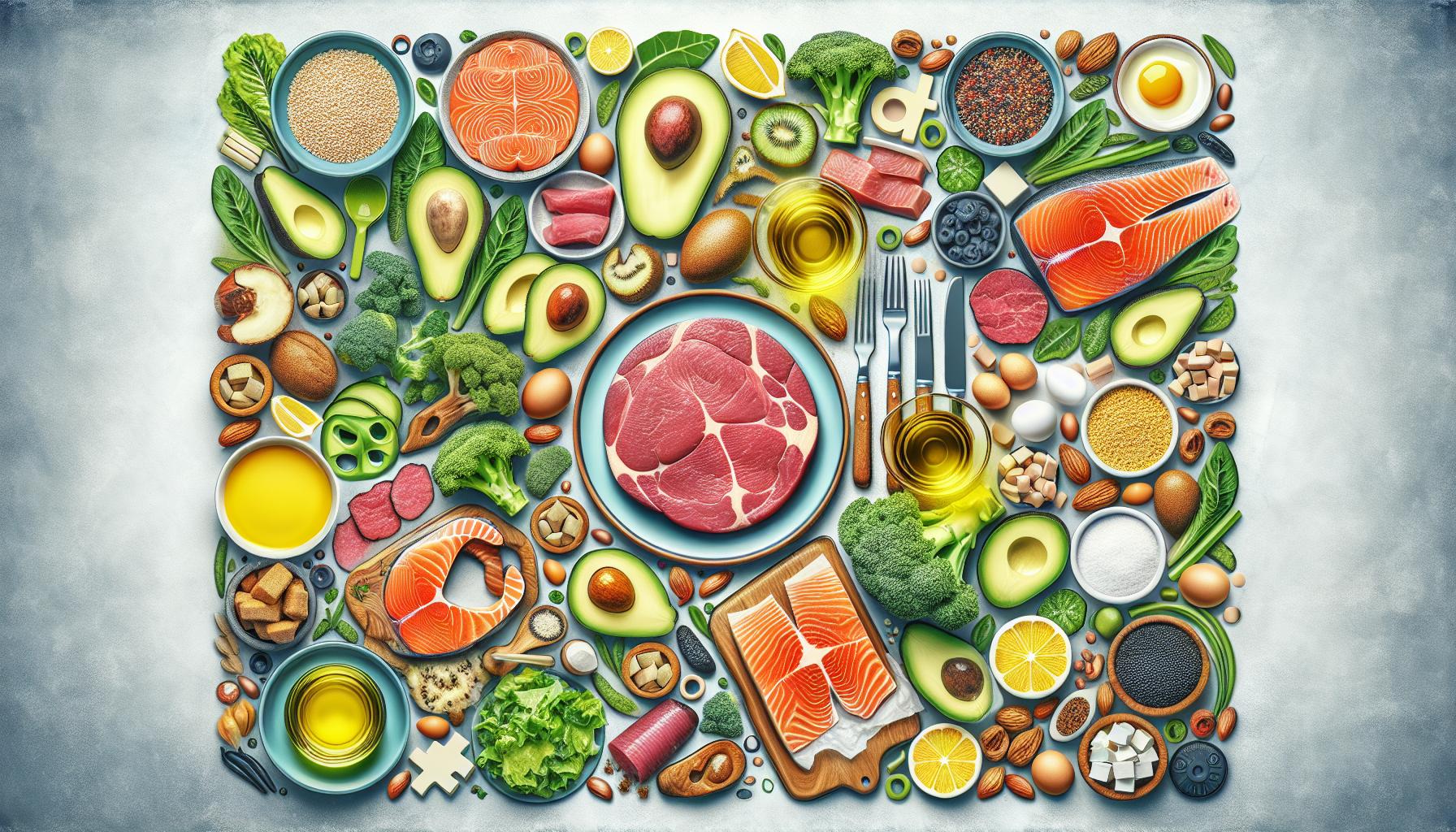
Introduction to Counting Calories in a Keto Diet
How many calories should you consume on a ketogenic, or ‘keto’ diet? This is one common question that pops up while maneuvering through the fascinating maze of diet planning. While the most succinct response might indicate that daily calorie consumption on a keto diet generally falls between 1500-1700 calories, the true answer is a touch more complex. It depends heavily on factors like your age, weight goals, existing medical conditions and level of physical activity. In this article, we’ll journey through the key principles of defining your calorie count within a keto diet, essential elements, and useful tips to keep in mind while on this low-carb, high-fat dietary plan.
Understanding the Keto Diet
A computer coding your body’s complex dietary framework, a keto diet primarily reinvents the fuel source your body taps into. Going keto means shifting towards a diet abundant in healthy fats, moderate in proteins, and decidedly low in carbohydrates. The metabolic state of ketosis achieved on this diet pushes your body to burn fats for energy instead of carbs. So the notion of calorie counting on keto takes a different perspective compared to standard diets.
The Principle Elements of the Keto Diet
A typical ketogenic diet generally includes approximately 75% fats, 20% proteins, and a precious little 5% from carbohydrates. Despite the seeming simplicity of the breakdown, the implementation can often be as tricky as a tightrope over a chasm. A helping hand in understanding the nuances of maintaining calorie count on a keto diet can make the balance easier to strike.
Making Sense of the Keto Calorie Count
Contrary to popular belief, one size doesn’t fit all – especially when it comes to diets. Personalizing your keto diet means meticulously understanding your own body’s needs. A general approach might suggest consuming 20-30% fewer calories than your body requires to maintain its current weight if weight loss is your goal. If maintaining your weight is your aim, you’d aim to consume the same number of calories that your body uses.
Calorie Counting Beyond the Math
Amidst the relentless maze of numbers, it’s easy to forget that successful implementation of a keto diet isn’t just about mathematics. Prioritizing quality over quantity, focusing on nutrient-dense, whole foods can be the missing piece of the puzzle for many on this journey.
Flavors in the Keto Diet
Conjuring up images of butter-laden coffees and cheese-drenched vegetables, the talk of fats in a keto diet can be a little unnerving for some. However, maintaining calorie count without compromising on the diverse flavors of your meals is indeed achievable. Incorporating a wide variety of healthy fats, proteins, and nutritious veggies can help you enjoy your diet while still adhering to your calorie count.
A Palate Pleasing Keto Diet
A savory symphony in your kitchen doesn’t mean breaking your calorie bank. With creative swaps like using cauliflower instead of potatoes or spiralized zucchini as pasta, you can constructively indulge in your favorite dishes without tipping the calorie scales.
Conclusion
A keto diet can be a transformative journey, alternating between a steep learning curve and rewarding victories. Understanding that calories on a keto diet are not merely about tallying numbers, but more about nourishing your body, is the key. So as you embark or proceed on your keto journey, remember to strike a balance between staying within your calorie limits and savoring the vibrant variety of foods that can keep your journey flavorsome and fulfilling.
Frequently Asked Questions
1. What can I eat on a keto diet that is low in calories?
Foods that are low in carbs but high in satiety are your best bet. Avocados, lean meats, eggs, nuts, cheese, green leafy vegetables, and fish can comfortably fit into your keto diet plan.
2. Can I still lose weight on a keto diet without counting calories?
Yes, it’s possible to lose weight on a keto diet without obsessively counting calories. However, mindful eating and understanding portions can make your weight loss journey smoother.
3. How many carbs can I eat on a keto diet?
Usually, you would aim to keep your carb intake below 50g per day on a keto diet. For more aggressive results, some may even aim for about 20g.
4. Can I drink alcohol on a keto diet?
While alcohol is not necessarily off-limits on a keto diet, it’s worth noting that they are often high in calories and sugar. If you wish to indulge, opt for lower-carb options.
5. Can I eat fruit on a keto diet?
Certain fruits like raspberries, blackberries, and strawberries can be enjoyed in moderation on a keto diet due to their lower carb contents.


